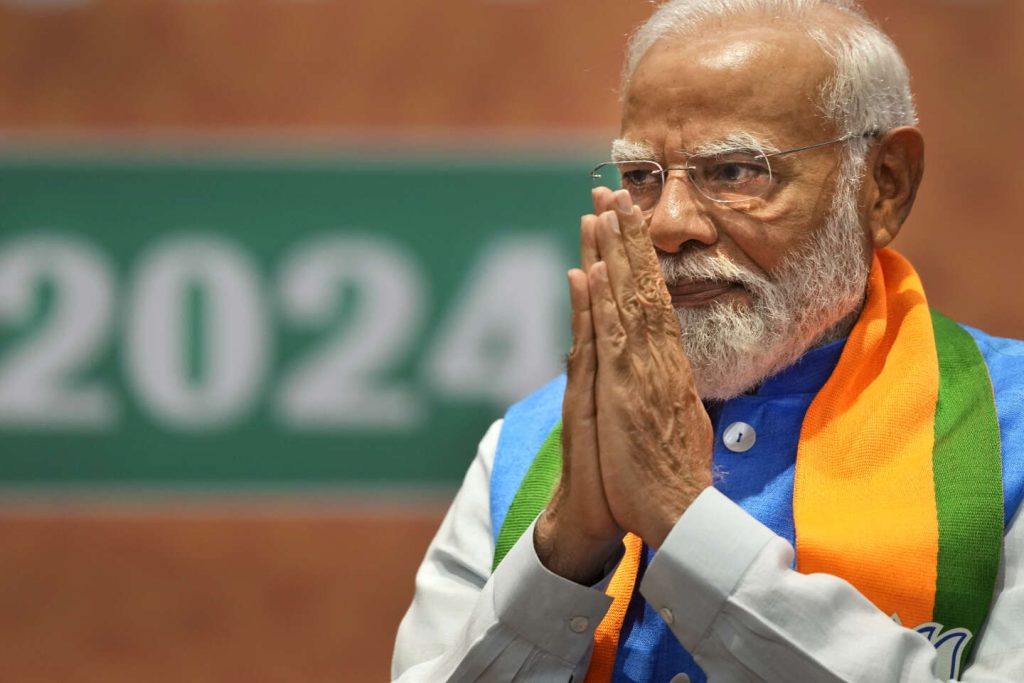The ongoing electoral campaign in India bears a striking resemblance to the one in 2019, with the same key players – incumbent Prime Minister Narendra Modi pitted against Congress Party leader Rahul Gandhi, and similar themes being highlighted. The opposition continues to criticize the government’s economic and social policies, while the ruling Bharatiya Janata Party (BJP) emphasizes Hindu nationalism, with Modi as its key figurehead. However, there are some interesting shifts in Modi’s approach this time around. He is not just positioning himself as the defender of India against Pakistan anymore, but also as the supreme leader of the Hindu community. This was evident when he personally performed rituals at the inauguration of the Ayodhya temple, which was built on the ruins of a mosque demolished by BJP supporters in 1992.
Despite these minor differences, the core objective of Modi’s government has remained consistent since his first victory in 2014 – to transform India into a Hindu Rashtra, where Muslims would be relegated to second-class citizenship. This agenda is reflected in laws that discriminate against Muslim refugees from neighboring countries and make it difficult for individuals to convert to religions other than Hinduism, as well as interfaith marriages. Muslims in India are subjected to scrutiny and harassment by Hindu nationalist groups, who monitor highways to prevent the transportation of cows – considered sacred in Hinduism, as well as patrol streets and campuses to discourage interaction between Hindu and Muslim individuals, often resorting to violence in the form of beatings or lynching.
On the opposition front, there are also some new themes emerging, including criticism of Modi’s handling of China. Following Chinese incursions in the Himalayas in 2020 that resulted in the deaths of Indian soldiers, China has gained control over disputed territories claimed by India, as evidenced by satellite images. This has led to concerns about Modi’s ability to effectively deal with the Chinese threat and protect Indian territory. These issues are being raised by the opposition as part of their campaign strategy to highlight the weaknesses of the Modi government and garner support from voters disillusioned with the BJP’s policies.
Overall, the current electoral campaign in India is shaping up to be a contentious battle between the BJP and the opposition parties, with familiar faces and issues dominating the discourse. Modi’s emphasis on Hindu nationalism and his efforts to solidify his position as the leader of the Hindu community are central to his campaign strategy, while the opposition is focusing on criticizing the government’s policies, particularly in relation to national security and foreign relations. The outcome of this election will have significant implications for the future of India, as it grapples with questions of identity, secularism, and governance in a diverse and complex society. It remains to be seen how voters will respond to these competing narratives and what impact it will have on the political landscape of the country.


